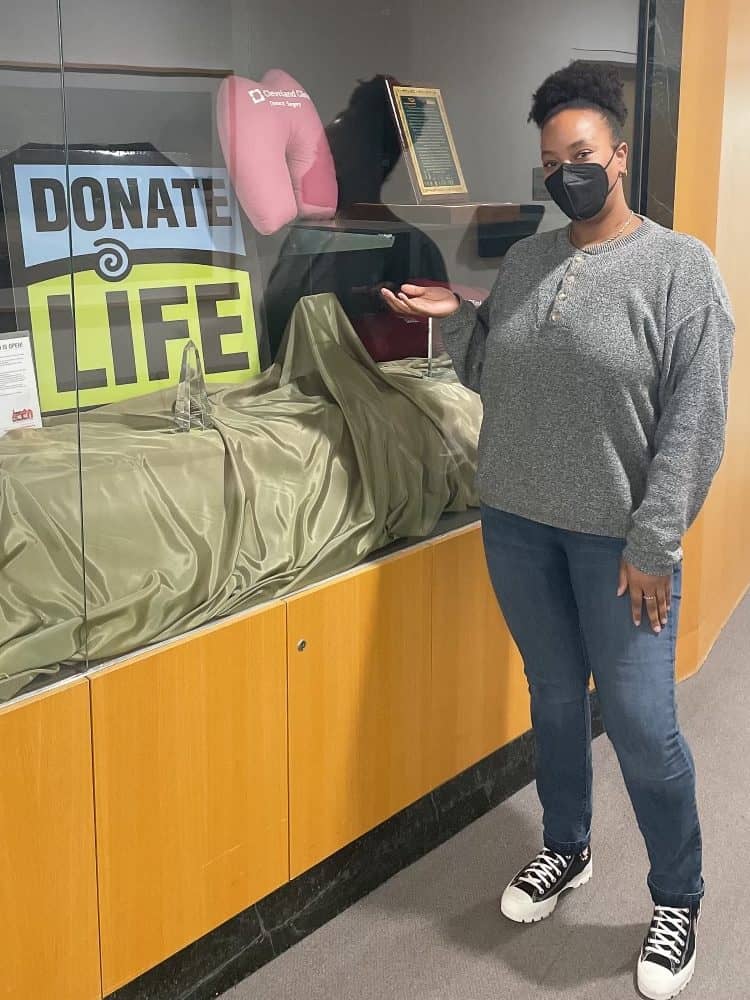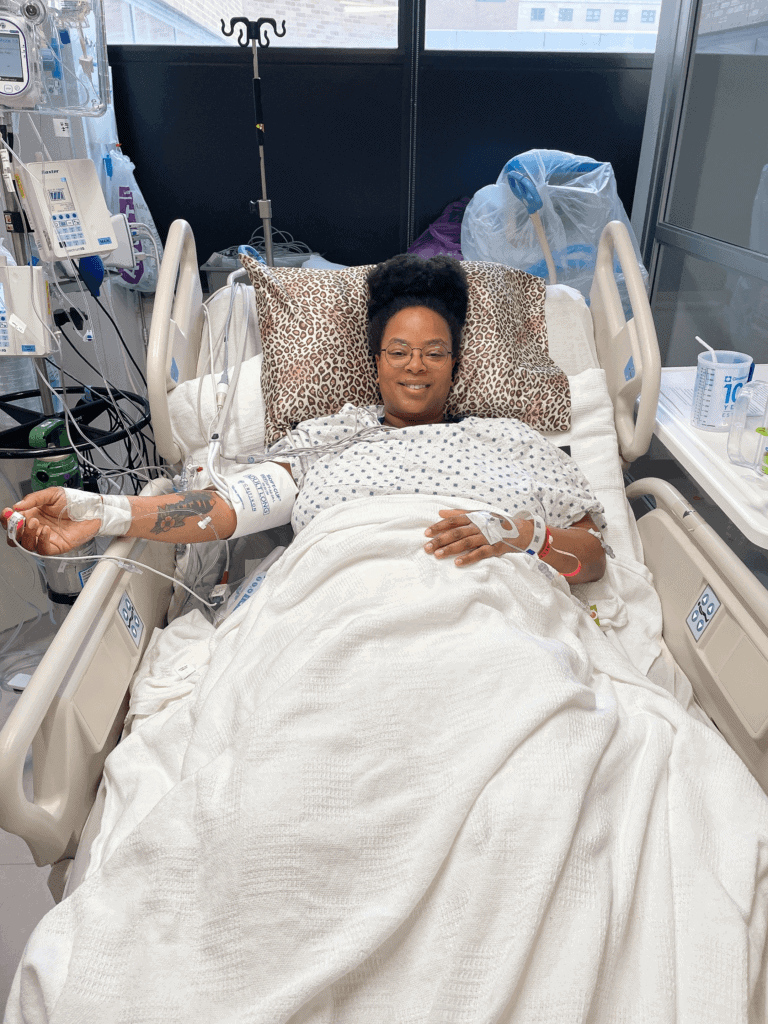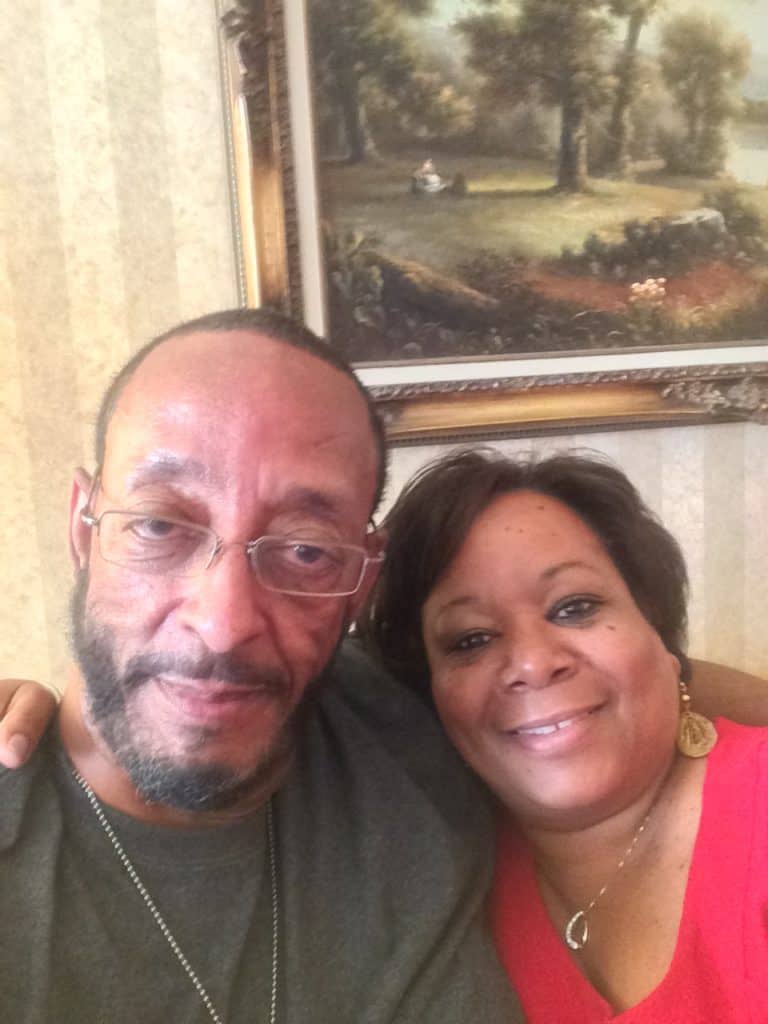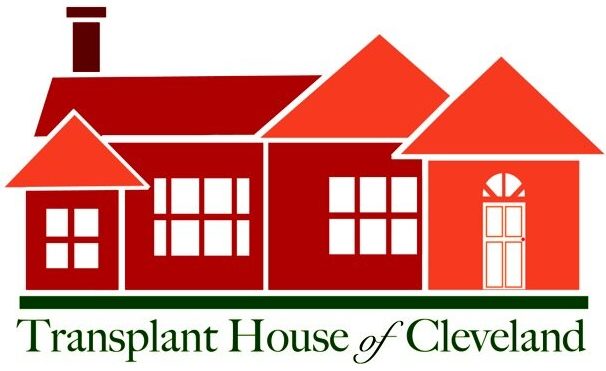
Six years ago, Noland Williams learned he would need a liver transplant. Within a year he was listed, but Noland would continue to wait for a liver for another five years.
“He had been on the list for so long,” his wife, Wyvette, recalls, “and he was getting sicker as the years went by.”
Their daughter, Aly, had been donating blood religiously since high school. Now in her early 30s, Aly continues to be a regular blood donor and is listed as a potential marrow donor (though she’s not yet been called to donate). Which is why, when looking back now, Wyvette isn’t surprised that Aly came to her and Noland with the idea of being a living donor for her dad. Neither Noland nor Wyvette knew that being a living donor was an option and at first neither of them pursued the idea seriously.
“We didn’t brush it off,” Wyvette explains. “But we didn’t really talk any more about it because for your child, you don’t want to put them through that: the surgery and what complications could come because of that. That was Noland’s worry.”
But Aly didn’t give up on the idea.
“She approached my husband – and she didn’t come out and tell my husband that you don’t have any say in it – but she did say that this is what she wanted to do. And for him not to worry about it. That it was something she’s done research on.”
Aly had researched hospitals, too, and she learned that the Cleveland Clinic was one of only two hospitals in the United States that performs living donor transplants laparoscopically. (A laparoscopic surgery allows for a much smaller incision site, is less invasive, and typically results in a shorter hospital stay and a quicker recovery time.) Aly knew after she read about the laparoscopic procedures performed by Dr. Kwon and Dr. Hashimoto that she wanted her surgery performed at the Cleveland Clinic.
That meant that the Williamses had to make the drive up from Frankfort, Kentucky to Cleveland several times during a seven-month period for what Wyvette remembers as “a lot of testing to make sure they were compatible.” In December of 2021, Aly was told that she was a match for her dad and their surgeries were set for January.
But the spike in COVID cases put their surgeries on hold. After a couple of weeks, Aly received another call from the Cleveland Clinic. They had two openings for surgery: the seventh of February and the fourteenth. Aly, on one line with the surgery coordinator and on another with her mom, asked Wyvette when to have the surgery.
“I said, well, the sooner the better. So, the seventh was it.”
Aly’s surgery took about seven hours and Noland’s was almost twelve. As Wyvette waited, a nurse called her every two hours with updates.
“It was a big haze,” Aly says of the day of her surgery, “but I remember them saying that my dad was good and then I just cried.”
Noland had a similar experience, too.
“He asked, ‘How’s my daughter?’” Wyvette remembers. “When we all told him Aly was doing fine, he cried.”

Aly’s surgery was on a Monday, and she was out of the hospital the following Saturday. She stayed with her mom at Transplant House for another week and a half. After a few weeks, she was told by her doctor that her liver function had returned to where it was before Aly donated 61% of the right lobe of her liver. Five weeks out from her surgery, Aly was back at work (she works for the State of Kentucky, is a freelance web developer, and also sits on the board of a local non-profit called Wear Your Story that hosts cultural exchange events for the local community).
“It varies for people,” Aly says of her recovery time. “I was really lucky and had a really good recovery.”
Noland is continuing along the road to rehabilitation from his surgery and adjusting to a new life post-transplant.
“He’s progressing,” Wyvette shares. “Slowly, but he’s progressing.”
Aly’s advice for those considering being a living donor? “Don’t be scared of it. The cause is worth a few months of pain and recovery. Saving a life is just an incredible feeling.”

It is unusual for a guest to be a caregiver for both the organ recipient and the organ donor. Wyvette, who has been the primary caregiver for her husband for five years became the caregiver for her daughter, too. Since her arrival in Cleveland in February, Wyvette has been adjusting to her new life at Transplant House. She has worked for 34 years at Kentucky State University, a public, historically Black land-grant university in the state’s capital of Frankfort, and she is grateful that she was able to continue her work as a print and digital designer while staying in Cleveland. (“It’s always a cool job,” she says of her work.) But in many other ways the move to Cleveland changed her daily life.
“I’m a routine person. So, when it’s something outside of that routine, I need some time to plan – to think about it – and being here there’s no time for that. So, this has been an experience,” she says.
In the first six weeks after Noland’s transplant, Wyvette was spending twelve-hour days at the hospital from nine in the morning until nine at night. Now, Wyvette says, she still visits each day, but also makes time for herself to shop for groceries, read, watch TV, do some laundry, and explore the neighborhood and the different food options around Transplant House. She is looking forward to visiting the art museums nearby, too.
“It’s been good for me. Because it’s getting me out of my shell,” Wyvette explains. “Plus, I made so many friends here.”
One of those friends is Frank, another house guest who Wyvette met riding the Cleveland Clinic shuttle. They shared their experiences with one another, and Frank always made sure she made it back to her apartment safely in the evenings.
“I’ve heard Frank’s story,” she says, “about his wife and I’m so glad that she’s here at Transplant House now, too, and she’s out of the hospital and doing well. I haven’t met her, but I feel like I have.”
Wyvette mentions others, too, that she’s grown close to in her time staying here. There’s Nicole, whose husband received a heart and a kidney, whose apartment is right across the hall. Other neighbors include two women who are also from Kentucky. They spotted Wyvette’s Kentucky State University jacket one day and asked where she lived. (One of the two, as it turns out, lives about 10 miles from Wyvette and Noland’s hometown of Frankfort.)
Wyvette’s experiences speak to the community that is created at Transplant House between guests. They swap stories, offer support, celebrate and console together, and watch out for each other during challenging times in their lives.
“I’m just so thankful for Transplant House. Having a place that isn’t a hotel room, where you’re able to cook and just stretch out, and feel like you can settle in, it’s really awesome.”
Update
Noland and Wyvette returned home to Kentucky in July of 2022 after nearly 5 months in Cleveland. On February 7, 2023 they returned to Cleveland for a check-up and Noland was able to ring the bell!
